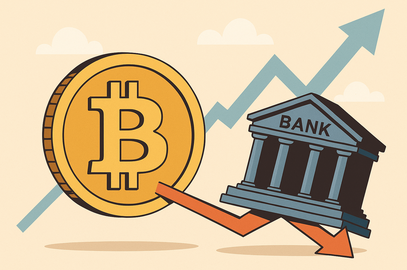
At first glance, October 31st might simply remind people of Halloween. But for those who look deeper, it represents something far greater — a celebration of freedom. Two historic events, centuries apart yet united in spirit, make this day a symbol of intellectual and financial independence.
📜 1517: Martin Luther and the Reformation
On October 31st, 1517, Martin Luther nailed his 95 Theses to the door of the Castle Church in Wittenberg — an act that marked the beginning of the Protestant Reformation. Luther stood up against the corruption of the Catholic Church, especially the sale of indulgences, calling instead for truth, faith, and personal conviction.
🔥 That moment sparked a movement that changed the course of history. It gave individuals the courage to think for themselves and challenged the notion of blind obedience to authority. It was the birth of spiritual freedom — the idea that every person could have a direct relationship with truth and with God, without intermediaries.
💻 2008: Satoshi Nakamoto and the Bitcoin Whitepaper
Nearly five centuries later, on October 31st, 2008, another revolutionary idea emerged — this time not from a monk, but from a mysterious figure known as Satoshi Nakamoto. Amid the global financial crisis, Nakamoto released the Bitcoin Whitepaper, proposing a new kind of money: decentralized, transparent, and free from banks or governments.
⚡ Just as Luther challenged the spiritual monopoly of the Church, Nakamoto questioned the financial monopoly of centralized institutions. Bitcoin became a symbol of digital sovereignty — a tool for those who believe that control over money should belong to the people, not the powerful few.
🌍 A Day of Freedom in Spirit and Finance
October 31st thus unites two revolutions: one of faith, and one of finance. Both were born from dissatisfaction with rigid systems and driven by a yearning for autonomy, truth, and fairness.
💡 Whether a hammer striking a church door or an email containing a nine-page whitepaper, each act carried the same essence — the courage to challenge the status quo and imagine a freer world.
🔔 Conclusion
October 31st is more than Reformation Day or Halloween. It is a Day of Freedom — the freedom to think, to believe, and to build.
It reminds us that every great transformation begins with a bold idea and the courage to share it.
🕯️ From Luther to Nakamoto: Five eras, one message — Freedom begins in the mind.





